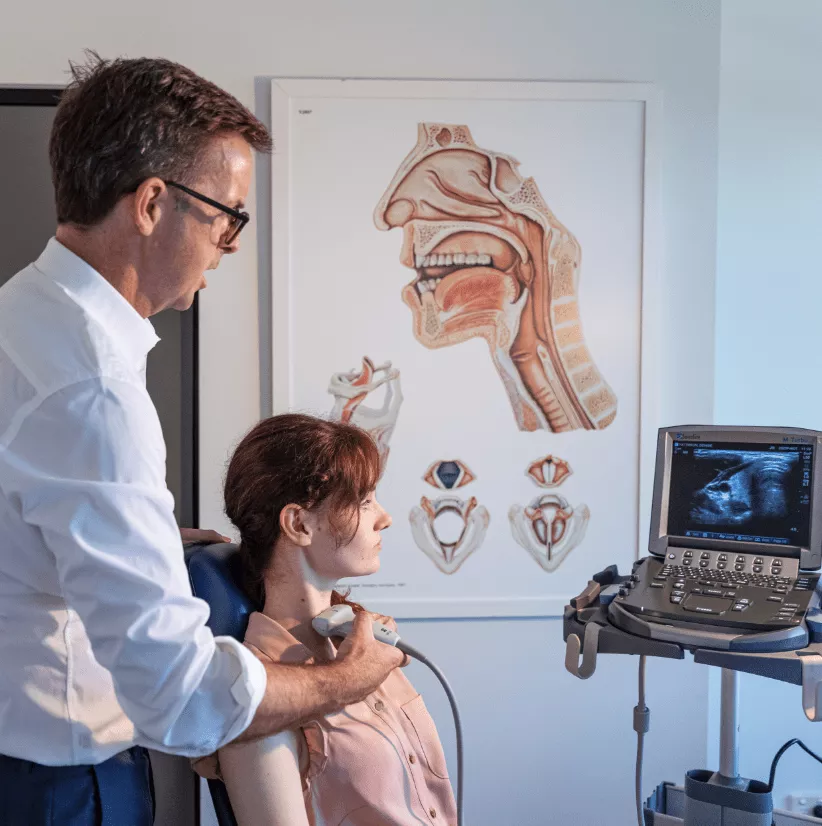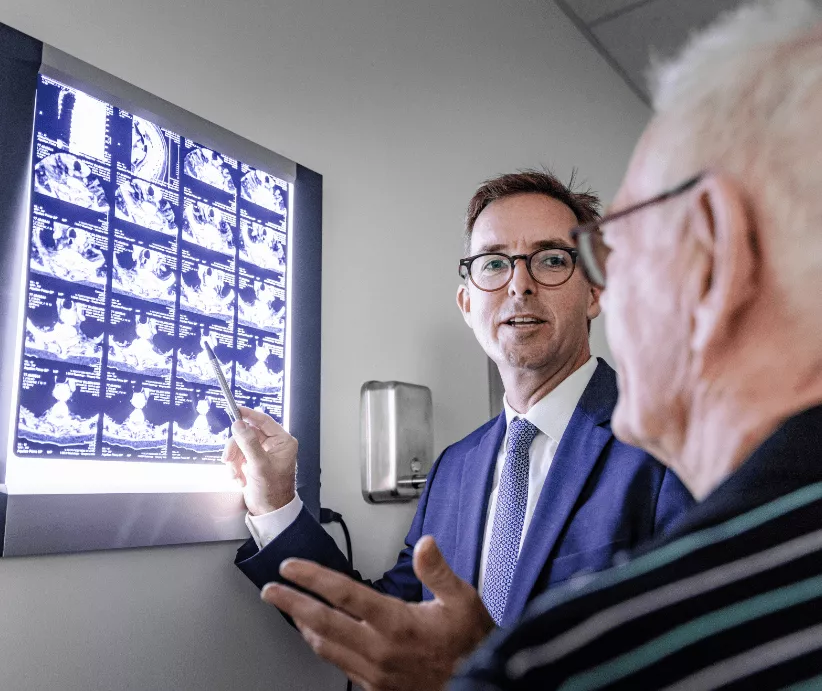Head & Neck
Salivary Gland Cancer
What is salivary gland cancer?
Salivary gland cancer is a condition where abnormal cells grow and create tumours within the salivary glands. There are 3 pairs of major salivary glands underneath and behind your jaw, known as the parotid, submandibular and sublingual. There are also many small minor salivary glands within your cheeks, lips, mouth, and throat. Salivary glands produce saliva which assists in digestion of food, keeping your teeth healthy and your mouth moist. Most salivary gland tumours are benign (non-cancerous), but some are malignant (cancerous). Salivary gland cancer is more common in older people around the age of 40-60 years and the majority of these cancers are found in the parotid gland.


How common is salivary gland cancer?
Salivary gland cancer is rare. The Cancer Council of Australia reports that about 320 people are diagnosed with salivary gland cancer every year.
What are the symptoms of salivary gland cancer?
The signs and symptoms of salivary gland cancer can vary, but may include:
- A lump or swelling on or near your jaw, your mouth, or the neck
- Experiencing ongoing pain in the area of your salivary gland
- Difficulty opening your mouth widely
- A part of your face that feels numb
- Feeling weakness on one side of your face
It is important to understand that simply having any of these symptoms does not mean that you have salivary gland cancer, but if they persist, they should be checked by your GP who will likely refer you to an ENT Head and Neck specialist such as A/Prof John McGuinness.
What is the cause of salivary gland cancer?
The exact cause of salivary gland cancer is not known, but there are factors that can increase a person’s risk, such as:
- Older age
- Exposure to Ultraviolet Light
- Exposure to radiation
- Workplace exposure to certain substances (rubber/ nickel industry)
- Viruses (EBV/HIV)
- Immunosuppression (dampened immune system)
- Genetics
- History of other cancers or skin cancers

How is salivary gland cancer diagnosed?
History:
A/Prof McGuinness will ask you questions about the lump, when it started, how quickly it has grown and if there is any associated pain, swallowing difficulties, or facial weakness. He will also ask questions about potential risk factors, such as other skin cancers of the head and neck, radiation treatments, your occupation, and family history,
Physical examination:
A/Prof McGuinness will perform a thorough examination of your head and neck.
Imaging tests may be ordered such as:
- Ultrasound, CT scan, MRI, Pet scan
Collection of a tissue sample (fine needle aspiration cytology or FNAC) is generally required to make a diagnosis.
How is salivary gland cancer treated?
A/Prof McGuinness and his multidisciplinary team will use the above test results to formulate the best treatment plan for you based on the stage and extent of your cancer, general health, and pre-existing medical conditions.
In general, treatment of salivary gland cancer depends on the type, location and spread and involves:
- Surgery to remove the cancer.
- Reconstructive surgery to repair the area and improve function.
- Radiation therapy.
- Chemotherapy
What is the prognosis?
Many salivary gland tumours will be benign. They can grow locally but do not spread or metastasize. Most of these will be cured by careful surgery alone. More aggressive cancers will require a combination of surgery and radiotherapy and rarely chemotherapy as well.
About A/Prof John McGuinness
A/Prof John McGuinness is an experienced specialist ear, nose, and throat surgeon, with international training in London and fellowships in head, neck, maxillofacial and laryngeal surgery. Working as part of a multidisciplinary team, A/Prof McGuinness is committed to providing the best, evidence-based tailored treatment plans for adults and children with salivary gland cancer, with the aim to promote their overall health and quality of life, no matter the extent or stage of their disease.
